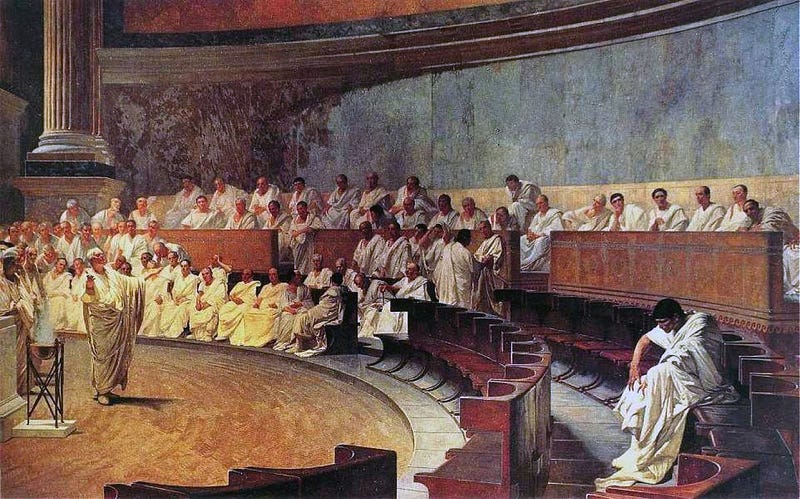 |
| We are spinning an algorithmic prison around our minds |
This post was was inspired by one of Caitlin Johnstone’s commendable essays where she noted (as have I) that Medium’s “…‘recommended-for-you-based-on-your-interests’ feature has no idea how to even deal with people like me”.
When you stop learning, you’re dead. And learning only happens when you taste the elements. You learn when you suffer contact. And when you expose yourself to something as diverse as reality, you can only become intellectually stronger. You see more, you know more and unlearn more.
When you harbour a “ conviction” on the other hand, you raise a ‘truth’ above and beyond all reasonable discourse and raw, unflattering debate. Such is the nature of religions; they demand subservience to a higher power that is beyond ANY kind of reproach. This isn’t a healthy environment to perform an inquiry of any sorts. This is an echo chamber made temple. And we have plenty of temples today, shaped by our recommendation algorithms at Facebook, Youtube, Amazon and many others. Our minds are slowly being enslaved by the algorithms.
The creation of the scientific methodology, reasoning and logic was supposed to help us “find the truth” about the mysteries of reality. And yet, in this era of the algorithmic society, we see the creation of reasoning aids that lock us deeper and deeper into barren thought temples of our own making. And we unabashedly relish this, knowingly or otherwise.
The computer and the world wide network envisioned by past and present pioneers were supposed to increase accessibility to information, to assist in the exploration and synthesis of new ideas. While that has largely happened, it has also led to the creation of our “monsters from the id”.
 |
| There is a whole world to explore outside your intellectual pen |
The end result is frightening; whole people can no longer understand whole communities. Flame wars and real wars break out because we refuse to comprehend each other. “Cultural clashes” happen because whole communities prefer to sit in a silo of their own making. And our algorithms that run social media, and yes even Medium, help to aggravate the situation.
How can you learn about the left side of politics if you only see your own side and vice versa? How can you understand Brexit if you refuse to leave abandon the “London mindset”, if only for a short while? How can you understand the consequences of regime change in Syria if you don’t really know what the alternative entails? How can you start a war when you don’t know your enemy beyond what your own culture perceives it as?
I should not be misconstrued as advocating for hippy peace and cultural understanding. I am more concerned about our mere survival as an intellectual race; learning through suffering contact with other minds. If you don’t touch it, you’ll never get it. Likewise, if you keep reading ThinkProgress all day, you’ll never understand why your BFF voted Trump.
Emancipate your mind today. Break free of the algorithms that rule the our minds and explore the works of minds far different from yours, if only for your own sake.


